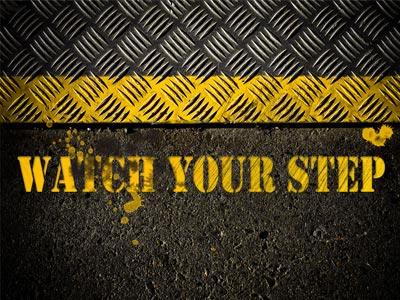-
You Really Can't Take It With You Series
Contributed by Scott Carmer on Nov 28, 2017 (message contributor)
Summary: Avarise, or greed, is different than coveteousness. Covetousness is a desire for things we don’t have. Avarice is a hoarding of things we have but don’t need.
You Really Can¡¦t Take It With You
Luke 12:15-21
February 27, 2005
We are in the midst of our sermon series on the seven deadly sins, and have come to avarice. It is something that we have to consider. Avarice is a word that we don¡¦t use all that often, but it means a passion for acquiring and hoarding riches. A synonym is greed.
Avarice is different than covetousness. Covetousness is a desire for things we don¡¦t have. Avarice is a hoarding of things we have but don¡¦t need.
Jesus told a parable about a rich man, his crops, his barns, and his spiritual life. It seems that there was this rich farmer who had a bumper crop. Now, he was rich before his great harvest, and already had a number of barns. But this one particular harvest season was so abundant that he ran out of room to store the grain. So he decided to tear down his barns and build bigger ones.
You all know that one fast growing industry in the United States is the storage business. You see those self-store places all over. For a few bucks a month, you can rent a unit in which you can keep all of the stuff you don¡¦t have room for in your basement or garage. The unspoken message is that you shouldn¡¦t have to think about getting rid of some of your stuff. Just continue to collect it and when you finally get too much, store it. We have all sorts of stuff that we don¡¦t need, don¡¦t we? But now, it is okay to be a packrat. When you run out of room, just find someplace else to put it.
So the rich farmer in the parable didn¡¦t even consider if he had too much stuff¡Kin his case, so large of a crop that it was difficult to handle. He didn¡¦t just add on to the old barns. No, he completely tore them down to build new ones. Sort of like when the tear down a K-Mart or a McDonald¡¦s and build a bigger one right next door. That would allow him to store his crops, after which he could sit back and relax. He could eat, drink, and be merry, content with the knowledge that he had provided for himself and his family for many years to come.
But God called him a fool because his life would be demanded of him and then what would become of all of his possessions?
Notice what this fellow has done. There is no indication in the story that he was concerned about his tithe to God. Plus, he didn¡¦t consider the needs of the poor in his midst. A few years ago, I read an article which said that in this era of Israel¡¦s history, there were basically two classes of people¡Kthe incredibly rich and the desperately poor. This rich farmer didn¡¦t even consider the needs of the poor and the welfare of those around him. He had spent all of his energy planning and hoarding for a future that he doesn¡¦t have.
If I could make a political observation¡KI read this in a book by Maxie Dunnam and it sure makes sense. (¡§The Workbook on the 7 Deadly Sins,¡¨ Maxie Dunnam and Kimberly Reisman Dunnam. 1997. Nashville: Upper Room Books. page 118). It seems that the brilliance of Ronald Reagan¡¦s quest for the presidency back in 1980 came down to one question. He was behind in all of the polls until he asked this question at one of the debates with Jimmy Carter. I still remember it. He looked square into the camera and asked, ¡§Are you better off now than you were four years ago?¡¨ One of the main issues in his campaign was the state of the US economy. It was in part, an appeal to the economic worries of the people.
That was genius because he distilled his message down to one short, sharp, clear talking point. It was a question that resonated with us, got us to thinking, and ultimately, paved the way for his election.
Now, I do not think that President Reagan was talking about greed. We often talk about the greed of the 80¡¦s, but I don¡¦t think that is what he had in mind. Still, when we ask ourselves that question, we run the risk of falling into the temptation of thinking that a wealth of possessions produces abundant life. Jesus is clear. The one who dies with the most toys, does not win.
Years ago, I read a sermon by the pastor down in Atlanta. He reminded his congregation that morning that there are no pockets in a shroud. You really can¡¦t take it with you.
I don¡¦t know if this story is true or not, but I heard that at the funeral of Aristotle Onassis, one question kept being asked by those who had been invited to the ceremony. Again and again, people were heard to ask, ¡§How much did he leave?¡¨ The answer, of course, was ¡§everything.¡¨

 Sermon Central
Sermon Central



